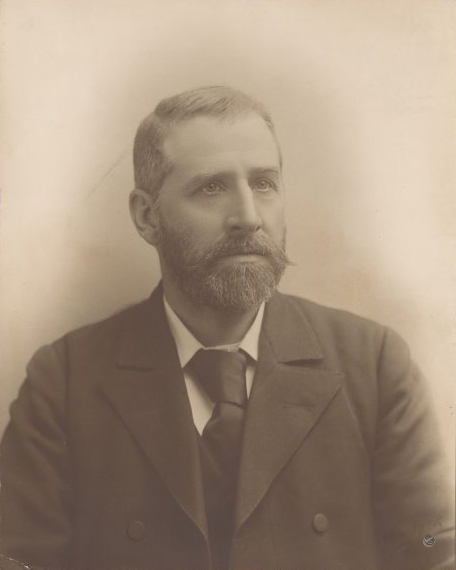Clark, Andrew Inglis (1848-1907), was an Australian lawyer and politician who helped write much of the Constitution of Australia. He also served as the attorney general of Tasmania and as a judge on the Supreme Court of Tasmania.
Early life.
Clark was born on Feb. 24, 1848, in Hobart, Tasmania. Tasmania at that time was a British colony officially known as Van Diemen’s Land. After high school, Andrew became an apprentice (young person learning a trade) at his father’s engineering firm. He qualified as an engineer and served as the firm’s business manager. In 1872, at the age of 24, Clark began to study law. In 1877, he became a barrister, a lawyer qualified to argue cases in the highest courts.
Political career.
In 1878, Clark won election to the House of Assembly, the lower house of Tasmania’s colonial legislature. He failed to win reelection in 1882, and he lost two more elections in 1884 and 1886. In 1887, Clark won a by-election (special election to fill a vacant seat) to the House. He remained in the House until 1898. Clark served as Tasmania’s attorney general from 1887 to 1892 and from 1894 to 1897.

Clark became one of the leading liberals in the House. He helped pass laws giving workers the right to organize into trade unions, preventing cruelty to animals, and protecting children from abuse and neglect.
In 1896, after several attempts, Clark won passage of an amendment to Tasmania’s Electoral Act. The amendment introduced for the cities of Hobart and Launceston a system of proportional representation. Under this system, political parties receive parliamentary seats in proportion to their share of the total vote. Clark based his system on one created by the English barrister Thomas Hare in the 1850’s. The entire state of Tasmania adopted the system, known as the Hare-Clark system, in 1907. Tasmania still uses it today.
The Constitution of Australia.
In 1891, Clark represented Tasmania at the National Australasian Convention in Sydney. The convention focused on how the six British colonies in Australia might form a federation.
Clark wrote a draft constitution for the delegates of the convention. Clark’s draft was deeply influenced by the Constitution of the United States and contained the American idea of separation of powers. Under separation of powers, the government is divided into a legislative branch to make the laws, an executive branch to enforce the laws, and a judicial branch to interpret the laws.
Of the Constitution’s 128 sections, Clark wrote the first drafts of 86 sections. Other contributors to the Constitution were Edmund Barton, from New South Wales; Sir Samuel Griffith, representing Queensland; and Charles Cameron Kingston, from South Australia. The Constitution took effect on Jan. 1, 1901, when the six colonies combined to form the Commonwealth of Australia.
Later life.
Clark helped establish the University of Tasmania in 1890. He served as its vice chancellor, a high-ranking administrative officer, from 1901 to 1903.
In 1898, the governor of Tasmania appointed Clark a puisne (associate) judge of the Supreme Court of Tasmania. Clark was promoted to senior judge in 1901. He served on the court until his death on Nov. 14, 1907.
See also Australia, History of (Self-government for the colonies) ; Constitution of Australia ; Federation of Australia ; Preferential voting ; Tasmania, University of .
